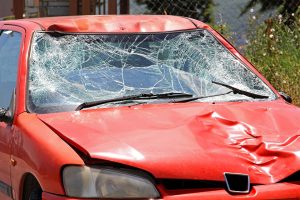In Massachusetts, Debate Continues on Ignition Interlock Devices for First-Time Drunk Drivers

The Massachusetts Legislature is being asked to reconsider a ignition interlock law for first-time OUI offenders.
Many of us recall when Massachusetts passed Melanie’s Law to increase penalties for drunk drivers. This was a landmark bill aimed at preventing drunk driving injuries and deaths.
Yet today, when it comes to drunk driving laws, Massachusetts now falls behind some expectations. While ignition interlock devices are mandatory for repeat drunk drivers, they are not required for first-time offenders.
Each year, Mothers Against Drunk Driving (MADD) asks Massachusetts lawmakers to extend the requirement to first-time offenders. According to the advocacy organization, 119 people are killed each year in Massachusetts drunk driving crashes and that drunk driving fatalities account for 31 percent of all drunk driving deaths.
In January 2019, Gov. Charlie Baker and Lt. Karyn Polito included the measure in the administration’s road safety bill. According to the State House News Service, a hearing was held on the bill, but it remains to be seen if we will hear more this year. There was more than one bill filed this year, but no update since the summer.
Massachusetts Drunk Driving Laws
Massachusetts lawmakers passed Melanie’s Law in 2005 and this took effect in 2006. Named for the 13-year-old victim of a drunk driver, Melanie’s Law increased penalties for those charged with operating a motor vehicle under the influence of alcohol or controlled substances. It also increased jail time in drunk driving accidents resulting in serious injury and death.
Melanie’s Law was the state’s introduction to the ignition interlock device, a small unit designed to detect alcohol on one’s breath. The device is electronically connected to the vehicle’s ignition and won’t allow drivers to operate if they are intoxicated. Over the past 13 years, ignition interlock devices have been installed for more than 17,000 drivers, according to Mass.gov.
According to MADD, ignition interlock devices stopped drivers 31,845 times in Massachusetts between December 1, 2006 and December 1, 2016.
State by State: Ignition Interlock Laws
The national debate over ignition interlock devices dramatically changed in 2013. This is when the National Highway Traffic Safety Administration (NHTSA) released new model guidelines encouraging states to pass requirements mandating use of ignition interlock devices for first-time offenders. States were also urged to establish a minimum period of time for use.
According to the National Conference for State Legislatures, 28 states and the District of Columbia now have mandates for all offenders. These include New Hampshire, Vermont and Connecticut. The ignition interlock law is slightly different in Maine. Rather than mandating use, first-time offenders are eligible to get their license back earlier (after 30 days) if they keep the ignition interlock installed for the remainder of their sentence.
Like Massachusetts, Rhode Island requires use of ignition interlock devices for repeat offenders, though there are differences in the state laws.
Federal Law: Ignition Interlock
MADD isn’t the only organization pursuing ignition interlock devices. The Chicago Tribune reported a former NHTSA administrator was before Congress this summer, urging members to pass a law mandating automakers build vehicles with passive ignition interlock devices. According to the official, the technology has been available since 2006 and wider use could save up to 7,000 lives each year.
Breakstone, White & Gluck – Boston Car Accident Attorneys
At Breakstone, White & Gluck, our Boston car accident lawyers specialize in investigating all types of car accidents, including those caused by drunk drivers. With more than 100 years combined experience, Breakstone, White & Gluck has represented numerous drivers who have been struck by intoxicated drivers. In drunk driving claims, the injured person may be entitled to compensation from the at-fault driver’s auto insurance policy. Additional compensation may also be available through other sources, including restaurants, bars and other establishments.
Learn your legal rights. For a free legal consultation, contact us at 800-379-1244 or 617-723-7676 or use our contact form.

